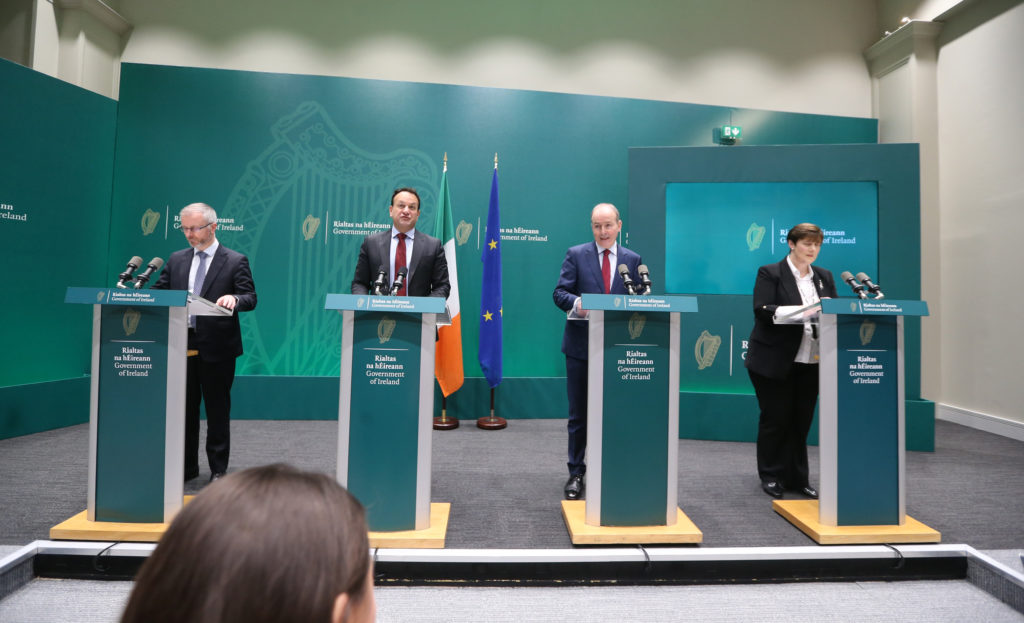TWO referendums will be held in Ireland next March on current references to family and care within the nation’s constitution.
Taoiseach Leo Varadkar has confirmed today that the votes will take place on March 8, 2024
They follow recommendations made by Ireland’s Citizens’ Assembly on Gender Equality earlier this year.
The Assembly recommended that a public vote be held to remove the ‘women in the home’ reference in Article 41.2 of the Constitution and replace it with language that is ‘not gender specific, and which provides recognition for care’.
Currently Article 41.2 of the Constitution states: “In particular, the State recognises that by her life with the home, Woman gives to the State a support without which the common good cannot be achieved.”
It adds: “The State shall, therefore, endeavour to ensure that mothers shall not be obliged by economic necessity to engage in labour to the neglect of their duties in the home.”
 Children's Minister Roderic O'Gorman, Taoiseach Leo Varadkar, Tánaiste Micheál Martin and Education Minister Norma Foley at the announcement on the Government's intention to hold referendums on family and care
Children's Minister Roderic O'Gorman, Taoiseach Leo Varadkar, Tánaiste Micheál Martin and Education Minister Norma Foley at the announcement on the Government's intention to hold referendums on family and careAnnouncing the date of the vote to change that wording, the Government confirmed their suggested replacement.
“The new Article provides that the State recognises that the provision of care, by family members to each other by reason of the bonds that exist among them, gives to Society a support without which the common good cannot be achieved and shall strive to support such provision.”
Making the announcement today, Minister for Integration Roderic O'Gorman said "a woman's place is where ever she wants it to be".
The proposed new wording shall ensure that Government protection is “not limited to the marital family", the Taoiseach said, before adding that families are founded on “relationships other than marriage”.
“Through our proposals, we’re extending this constitutional shelter to other lasting relationships and putting them on an equal footing with married families.
"The proposal will enable the constitution to catch up with contemporary reality and ensure that it reflects positive, inclusive ambitions,” he added.

